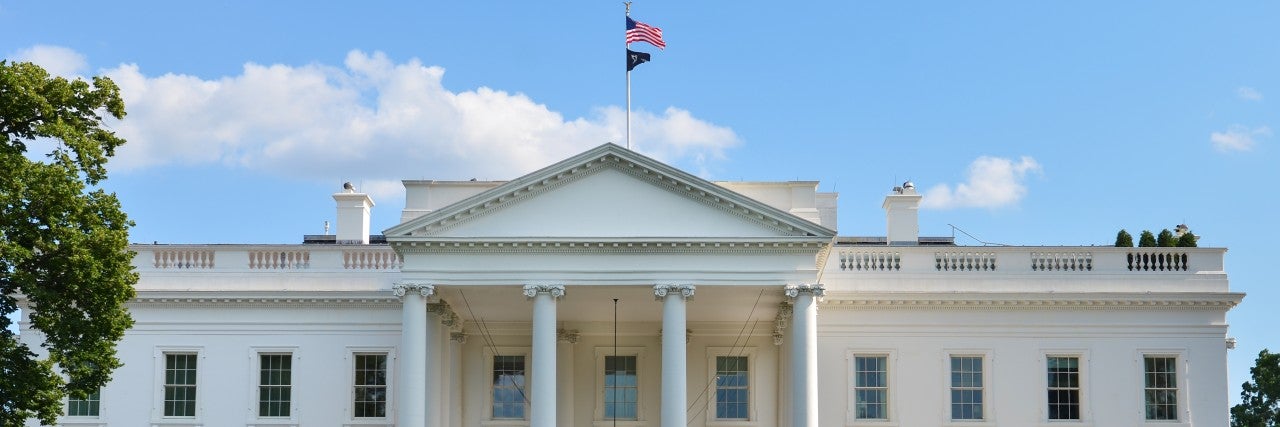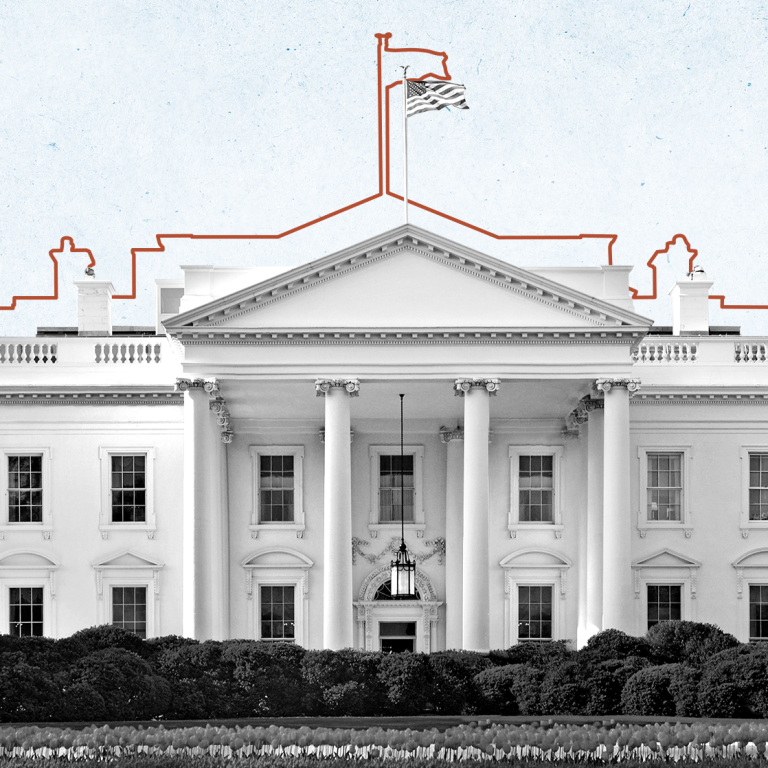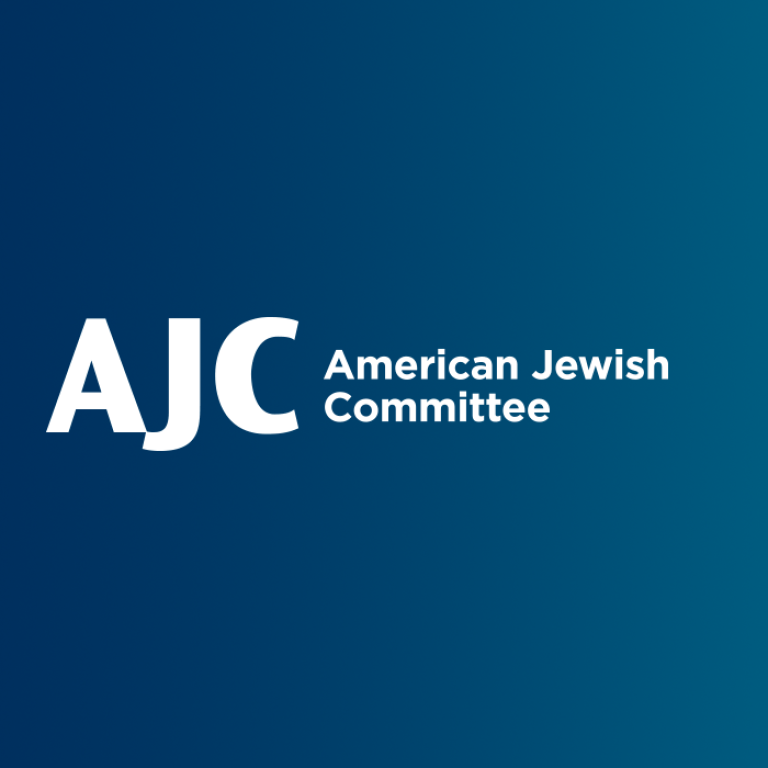May 25, 2023
Seeking to stop the insidious creep of antisemitism in the U.S. that threatens the Jewish community and American democracy at large, the Biden administration has unveiled the U.S. National Strategy to Counter Antisemitism. The national strategy includes more than 200 policy proposals and action items – 100-plus action steps for the federal government and over 100 more for companies, schools, and local governments.
Proposed by American Jewish Committee (AJC) in November 2021 and urged by AJC CEO Ted Deutch when he was a member of the U.S. House of Representatives (2010-2022), the comprehensive national strategy seeks to demonstrate a government-wide determination to curb the rise of antisemitic attacks and the growing perception that antisemitism is acceptable in the U.S.
“In adopting this national strategy, the White House has sent a clear, unequivocal message that antisemitism is a problem that affects all of society, not just Jews,” Deutch said. “This is a historic day for America and its Jewish community. AJC was proud to be part of the process to develop this strategy and is glad to see a whole of government approach to counter this persistent and pernicious threat.”
Here are five takeaways from this historic national strategy.
1) AJC’s Call to Action was answered
The U.S. National Strategy to Counter Antisemitism includes many policy recommendations from AJC’s Call to Action Against Antisemitism in America, a society-wide nonpartisan guide for all sectors of society to understand, respond to, and prevent antisemitism released in September 2022.
In fact, as part of its guidance for the Executive Branch, AJC recommended the creation of an interagency task force to draft a national plan, which the Biden administration convened last December.
The National Strategy also illustrates the power of collaboration. Led by the Domestic Policy Council and the National Security Council, an interagency group was formed to marshall the collective energy of top-level officials from more than 40 federal agencies.
Agencies met the challenge with creative solutions. The U.S. Department of Agriculture will aim to increase access to kosher food for Jewish recipients of food stamps. The Department of Veterans Affairs will highlight the contributions of Jewish soldiers and the diversity of our nation’s troops. The President's Council on Sports, Fitness and Nutrition will demonstrate how activities such as sports, cooking, dancing, and volunteering can cultivate an appreciation for each other’s cultures.
2) The U.S. government listened to American Jews
The national strategy focuses on what Jewish citizens perceive as antisemitism; not just what others think it is. It accomplished this by holding a number of listening sessions, including one focused on the unique threats faced by the Orthodox Jewish community.
Additionally, it engaged with Jewish organizations that monitor how safe the American Jewish community feels. According to AJC’s State of Antisemitism in America 2022 report, many American Jews are deeply concerned by the rise of antisemitic attacks, crimes, and violence, as well as how acceptable antisemitism and racism have become.
Nine in 10 American Jews (89%) think antisemitism is a problem in the U.S., and eight in 10 (82%) say it has increased in the past five years. Over four in ten (41%) of American Jews feel their status is less secure than it was a year ago. That’s up 10 percentage points from 31% who reported feeling less secure in 2021.
The U.S. National Strategy to Counter Antisemitism aims to strengthen the security of American Jews by actively engaging with the Jewish community.
3) Antisemitism was defined
Fighting antisemitism requires knowing what it is and the national strategy answers that most fundamental question using the same definition accepted by successive White House administrations.
The International Holocaust Remembrance Alliance (IHRA) Working Definition of Antisemitism, a consensus definition used by more than 40 governments around the world and adopted by more than 30 U.S. states, informs every part of the White House Action Plan.
The definition, or its predecessor, the EU’s Monitoring Centre on Racism and Xenophobia working definition of antisemitism, has been a guiding principle for the U.S. State Department since 2008. Since December 2019, the U.S. Department of Education has used it as a tool to protect Jewish college students from antisemitism. And in 2021, U.S. Secretary of State Antony Blinken affirmed the country’s commitment to the definition.
By reaffirming the administration’s embrace of this authoritative definition in its National Strategy, the White House makes it clear that antisemitism in its various manifestations has not been and will not be tolerated by the U.S. This includes contemporary antisemitism disguised as anti-Israel criticism, which undermines the existence of the Jewish state.
4) The global perspective
The White House drew inspiration from successful strategies implemented around the world.
The administration’s plan is the latest in a series of action plans that have been adopted by governments and international organizations.
In 2015, the French government launched its first comprehensive plan to fight antisemitism and racism and updated it earlier this year with guidance from AJC. Similar strategies have been implemented in Germany, Latin America, and elsewhere in Europe. In October 2021, the European Union unveiled its Strategy on Combating Antisemitism and Fostering Jewish Life, a multi-faceted plan that also incorporated many recommendations from AJC.
The next month, AJC applied its many years of experience in Europe to the White House, offering recommendations for combating domestic antisemitism, including the creation of a national action plan.
Then, earlier this year, AJC convened a roundtable of antisemitism envoys from around the world at the White House to share best practices and lessons from drafting and implementing their own action plans to combat domestic antisemitism.
5) This American strategy relies on all Americans
The U.S. National Strategy to Counter Antisemitism has four areas of focus. It aims to increase awareness and understanding of the significant contributions Jewish Americans have made to the nation’s history and the dangerous creep of antisemitism. It seeks to reverse the normalization of antisemitism and address antisemitic discrimination.
But setting it apart from other countries’ action plans is its emphasis on building coalitions across all communities to fight hate and to help people understand the interconnectedness of racism and antisemitism. While antisemitism is a distinct form of racism, addressing bigotry requires all hands on deck.
Ambassador Deborah Lipstadt, the U.S. Special Envoy to Monitor and Combat Antisemitism, said it best at AJC Global Forum 2022 during a session on how governments can fight antisemitism.
“If you’re going to take these hatreds, specifically antisemitism, seriously,” she said, “you have to recognize they are part of the warp and woof of hatred.”




